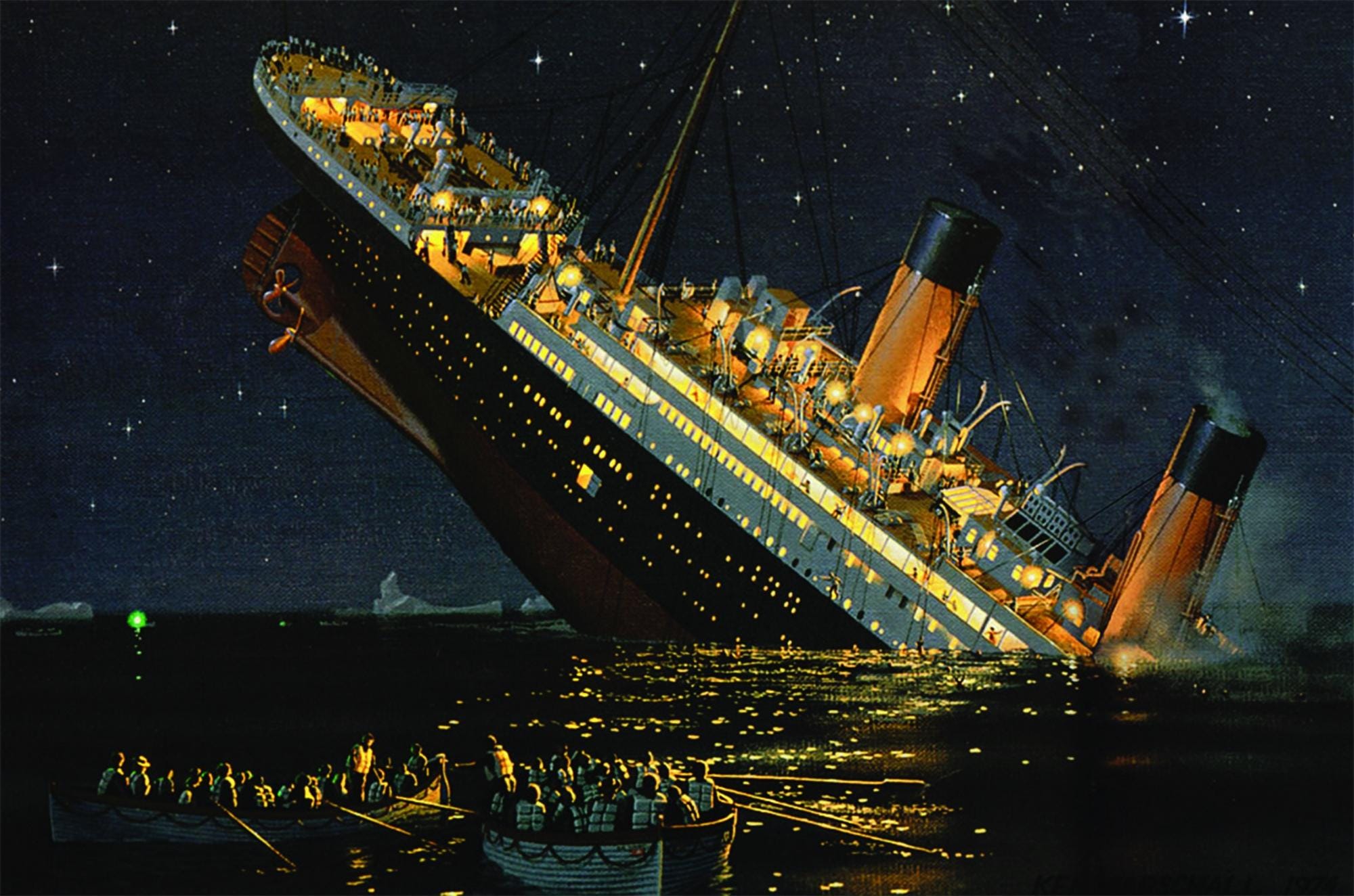Undergraduate student wins National Maritime History Dissertation Prize

April Perks, a recent BA graduate in History, has been nationally recognised for her third-year research paper.
The dissertation, written by April Perks, worthy of the award was titled 'The "Unsinkable" RMS Titanic: Which Factors Have Contributed to the Disaster's Continued Relevance in Popular Culture?'
The coveted Undergraduate Dissertation Prize, awarded by the British Commission for Maritime History, is described as the ‘Undergraduate Achievement in Maritime History aims to encourage students to pursue maritime questions in their final year of research, and to reward the best of that work.’ April received a £75 stipend as recognition of her research.
Her (6HS004) Independent Study project was supervised by Dr Howard Fuller who is a Reader in War Studies and also heads the University's Find the Captain Project:
‘Over the summer’, he observes, ‘the world was watching with bated breath for news of the lost submersible Titan, with five souls aboard including the OceanGate Expeditions founder offering trips down to the wreck of RMS Titanic. Amidst the potential horror that even more lives might succumb to this fateful ship’s continuing story, the Washington Post wondered ‘why the Titanic still fascinates’?’
‘As an undergraduate piece of research, writing, and analysis,’ Fuller continues, ‘April’s work indeed succeeded in identifying the importance of this topic (better perhaps than the Washington Post). Not just the academic and scientific literature but also popular media on this one lost ship is so vast that her biggest challenge was in selecting her sources wisely; these range from Bob Ballard’s reflections on the discovery of the wreck to Mary Shelley’s warnings about ‘power over nature’ in Frankenstein, or, The Modern Prometheus (1818). We are fairly mesmerised by ships for their timeless symbolism but also as time capsules.’
As April noted in her essay conclusion, ‘repeated references from all manner of sources reinforce the idea that the ship transcends time though is at the same time thoroughly grounded in the context of the Edwardian period’:
‘This told us that she also put her finger on why we love history’, states Dr Fuller. ‘For without the Story the Ship is indeed nothing more than a vestige, a rusting hulk, a wreck.’
For more information please contact the Corporate Communications Team.


/prod01/wlvacuk/media/departments/digital-content-and-communications/images-2024/240328-Varsity-Line-Up-Resized.jpg)
/prod01/wlvacuk/media/departments/digital-content-and-communications/images-18-19/220325-Engineers_teach_thumbail.jpg)
/prod01/wlvacuk/media/departments/digital-content-and-communications/images-2024/240423-Additive-Research-Centre-Launched.jpg)
/prod01/wlvacuk/media/departments/digital-content-and-communications/images-2024/240320-Uzbekistan-Resized.jpg)
/prod01/wlvacuk/media/departments/digital-content-and-communications/images-2024/240229-The-Link-Resized.jpg)
/prod01/wlvacuk/media/departments/digital-content-and-communications/images-2024/240416-Abi-Dare-Resized.jpg)